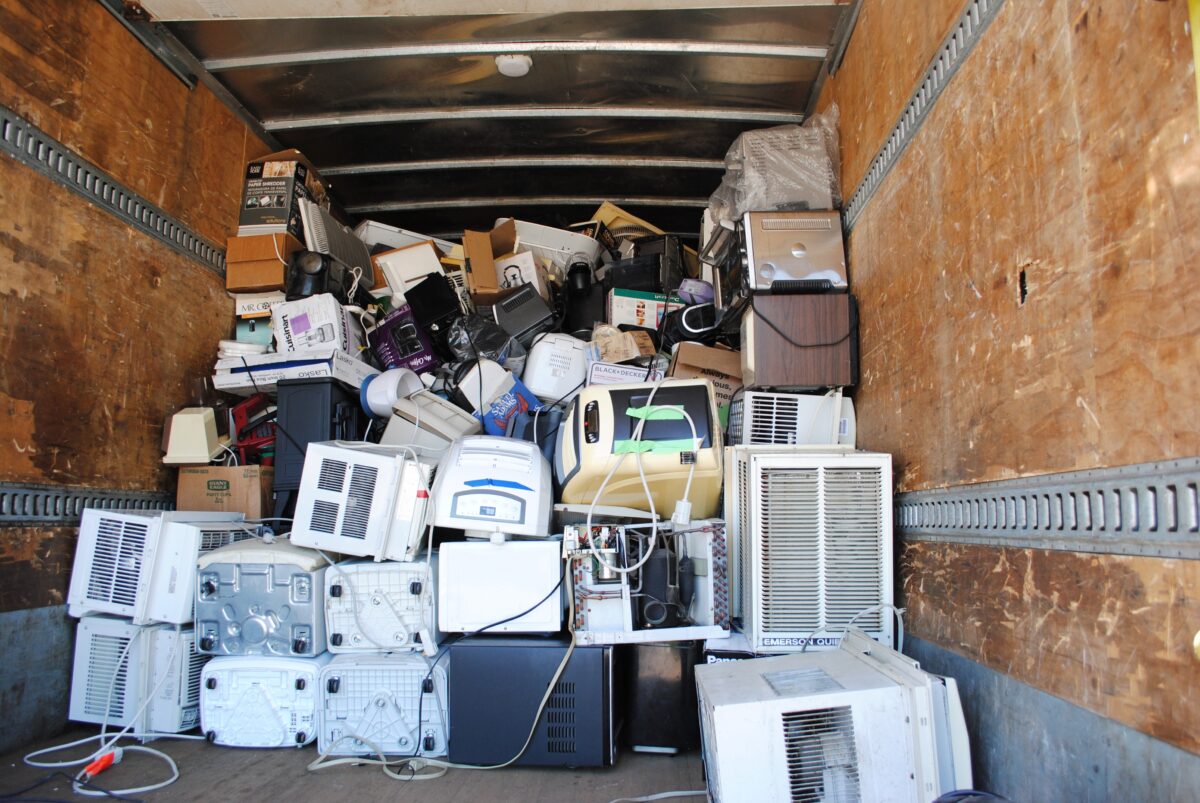Now that the holiday season has come to a close, consider adding some resolutions that will not only help you but also the planet. Recycling that Christmas tree is a good start, if you still follow that tradition in your home, but the Pennsylvania Resources Council believes that committing to three simple actions daily – recycling right, composting food scraps and yard debris, and reducing waste – can do much more year-round.
In a lifetime, average Americans will throw away 600 times their adult weight in garbage, according to a PRC news release. This means that a 150-pound adult will leave a legacy of 90,000 pounds of trash.
How to start? Create a waste audit of your household, checking to see what you throw out each week to recharge or start your commitment of caring for the environment.
Sarah Alessio Shea, PRC deputy director, explains the check will bring to light how often your household uses single use plastics and what food waste occurs among other habits. How deep you go is up to you.
“You can do it to the level where PRC might, to the extreme, sort it out and weigh out,” she said. “In a typical home, it can be looking at the majority of what you are throwing away, and then saying, ‘I am getting rid of plastic silverware and single-use plastic water bottles. [I will] find out if it is something I can replace, like these single use items with refillable containers.’ Is the food waste apple cores, leftover scraps? It’s just a great way to see what is the best to focus on when you’re looking to reduce your waste.”
Recycling right starts with understanding what all is included in your municipality’s waste collection contract. With the new year, many contracts have changed, Shea said, and a number of southern municipalities have added glass recycling as the market for it has improved and glass collection and recovery sites are growing businesses in southwestern Pennsylvania.
Residents should have received information in the mail about their waste collection contracts and can also search online to see if and how their waste and recycling contracts have changed. She urged residents to learn all they can by asking questions of local officials, researching online or calling the PRC recycling hotline at 800-346-4242.
Shea offered as example Bethel Park and Dormont officials working diligently to inform and educate their residents via videos and fact sheets on their websites, including the need for new containers and additions and changes to recycling collections. “They were being up front, transparent with their residents,” she said. “Sometimes change is hard, but [they said] this is the new system, and this is what is going happen.”
Most recyclers only take 1 and 2 numbered containers for recycling as few or no market exists for the others. Why do some companies not package their goods in those containers? Shea said it most likely depends on what they need for a particular product. “They may need something more rigid or more pliable,” she explained. “Cost may be a factor, too. Usually there is an additional cost [for recyclable plastic containers].”
Most of the questions PRC staff answer have dealt with hard-to-recycle items, including paint, chemicals, tires, TVs and other electronic devices. In partnership with governmental bodies and other groups, PRC offers collection events for those during the year.
Tackling food waste in your household involves two parts – purchase and preparation and composting.
“Food waste, that’s just a tricky one for all of us,” Shea said. “I am guilty of finding food waste in the back of my fridge. I’ve tried doing more meal planning and just picking a couple of grocery items and vegetables, maybe planning for three [homemade] meals for the week. Then it’s kind of mixed in with other food. It’s all habits and seeing what makes sense for you.”
Nationally, food waste is an issue. The Environmental Protection Agency reports that wasted food accounts for the largest portion of American trash by weight – more than 66 million tons a year – and once wasted food reaches landfills, it produces methane, a powerful greenhouse gas. Individual households generate approximately 40% of discarded food, according to the PRC news release.
Shopping more frequently for fewer items and more mindful meal planning can be a start. PRC has six fact sheets on learning to eat well, save money and waste less by adopting easy, practical strategies for preventing and reducing food waste.
Composting can be done in small or big ways in any household, Shea said, adding that she was not aware of how to do it until she went to college Residents can get started this month with a free online PRC recycling and waste reduction webinar on Tuesday, Jan. 23 at 6 p.m. “It all depends on what you want to get out of it,” she said. “It’s not a complicated process.”
In her own household, Shea said they keep a small composting bin “that looks like Darth Vader helmet.” Her daughters know to place their banana peels, for example, in that bucket. When the bin is full, it can be mixed with leaves and other yard debris and left to decompose. For others, who want to do more with their compost and have it ready sooner, “you have to pay more attention” to it, she said.
People who attend the PRC backyard composting seminars can purchase the containers, but they can be purchased at big box stores.
And if you want someone to do the composting for you, that is also possible, Shea said. A number of compost haulers conduct business in the region and will come to your home and pick it up for a small fee. You just set out the bucket, normally provided with a subscription, and the hauler collects it, Shea said.
PRC envisions a Pennsylvania where nothing is wasted. As one part of reaching that goal, the agency must continue to push back at recycling myths.
The biggest one? That materials do not get recycled, Shea said. “That is not the case. The materials that are collected in your recycling bins get turned into other things,” she said. “Please do it. It’s really valuable. So many materials we use every day can be recycled.”
A list of other upcoming PRC events – including sessions on watersheds and rain barrels as well as composting – is available on its website.
Helen is a copy editor at the Pittsburgh Post-Gazette, but she's currently on strike. Contact her at hfallon@unionprogress.com.



